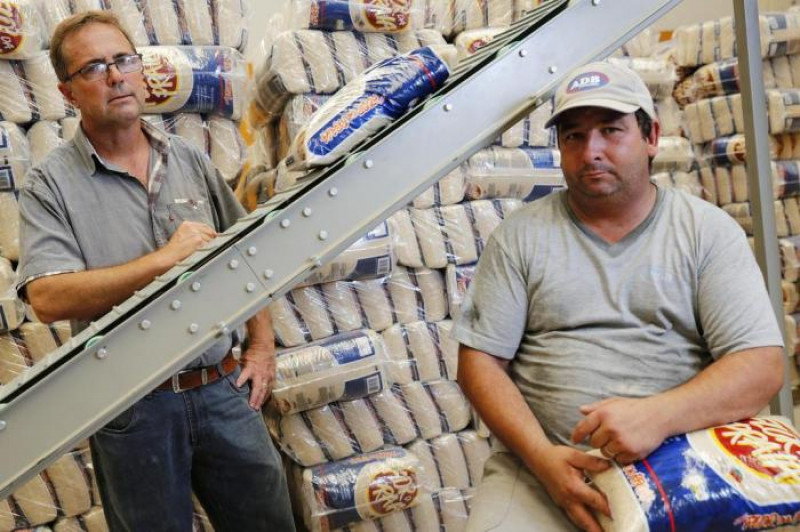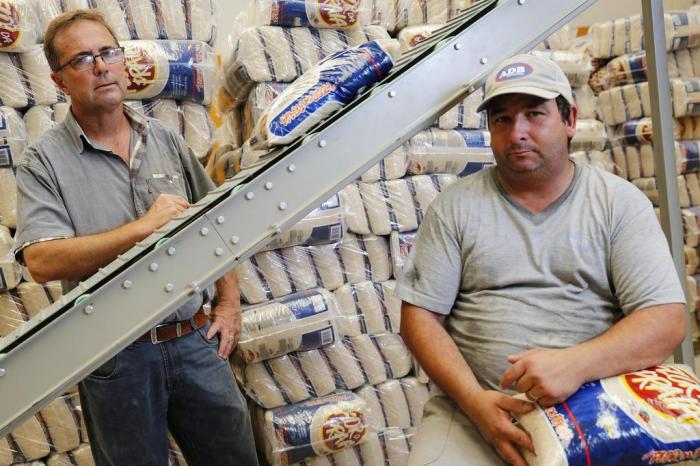In two years, 1,539 jobs were opened in municipalities with 30% or more of the Gross Domestic Product (GDP) linked to the sector.
Municipalities in Rio Grande do Sul with an economy linked to agriculture were practically unscathed by the crisis that broke out in the country in the last two years.
A survey produced by the Economic Advisory of the Farsul System, based on data from the General Register of Employed and Unemployed (Caged), shows that, in the 274 municipalities in the state where agriculture accounts for 30% or more of the Gross Domestic Product (GDP), the job creation remained positive even during the recession. In the so-called “agri municipalities”, 1,539 vacancies were opened in the last two years, as a result of the difference between admissions and dismissals. Meanwhile, in the other 223 cities, including the most populated ones in Rio Grande do Sul, the balance was 155,950 closed posts.
— Yes, the agro-municipalities had problems. They had a high level of employment and started to generate fewer jobs, but they still created. They managed to remain immune to the crisis — says the chief economist at Farsul, Antonio da Luz, noting that in these cities there is an spillover effect of the results of agriculture in other sectors.
In this sense, open positions in municipalities with strong agriculture are not restricted to the primary sector. In 2016, with the exception of civil construction, the other segments had more hires than layoffs. In the perception of Farsul's chief economist, the performance shows that these municipalities are less vulnerable to periods of crisis than the others.
Finding work close to home
The date is still alive in Faustino Dornelles' memory: March 29, 2016. It was when he debuted as a machine operator at ADB Alimentos, in Cristal. The opening of a company unit in the municipality located in the southern half, last year, made Dornelles fulfill the long-cherished wish of working in his own city. For years, he got used to looking for jobs in other locations. He went where there was work, until work knocked on his door.
— When the ADB works began, I decided to drop my resume. I'm from Cristal, I've lived in Vila Formosa for 28 years. Now my work is close to my village, about five kilometers from home — celebrates the worker, whose previous job had been as a chainsaw operator, near Canguçu.
Dornelles was one of 12 hired by ADB. Based in São Lourenço do Sul, the rice industry opened a branch for drying and processing grains. The location was chosen by logistics. The São Lourenço unit is next to the BR-116, about 50 kilometers from the headquarters and 150 kilometers from the port of Rio Grande.
— It's a small branch. The amount of labor we absorbed in the off-season was 12 people, but we are getting ready for the harvest. We will have to double the number of employees — projects manager Flávio da Rosa, who was also hired during the branch opening process.
The case of ADB is not unique in Cristal. Amid a period of recession and job losses in the state and throughout Brazil, the municipality created 398 new jobs between 2015 and 2016, according to statistics from the Ministry of Labor's Caged. The balance is significant for a city with just under 8,000 inhabitants.
Agribusiness drives champion in job creation
Even with less than 30% of its economy linked to agriculture, Cruz Alta was the champion in job creation in the state in 2016, thanks to the primary sector. Of the 1,039 vacancies created in the municipality of Noroeste, 932 were in this segment, according to Caged. With a series of ventures aimed at seed production, storage and transport of grains, it kept the job market heated.
Only Sementes Aurora generated more than 20 vacancies in 2016, expanding the staff to 110 employees. Romilton de Bortoli, managing partner of the company, says that it was necessary to hire to meet the demand for seeds and for soybeans, corn and wheat produced on site.
— We haven't laid off anyone in recent years, we have increased seed production and are even increasing the number of employees — details Bortoli.
Accounting Science student Dieferson Henricq was one of those recruited by the company. In a year in which millions of Brazilians lost their jobs, the 20-year-old was even able to choose the job that pleased him most. He left his job at an accounting firm to work as an administrative assistant at Aurora.
It was not only in Cruz Alta that the primary sector raised the level of employment. In the 497 municipalities in the state, the segment closed 2016, between admissions and dismissals, with 1,240 positions generated. In terms of overall performance, 57,266 jobs were closed.
In agribusiness, even activities that had been staggering show signs of recovery. This is the case of the machinery and implements sector. In the second half of 2016, manufacturers generated 133 jobs, something that was not.










